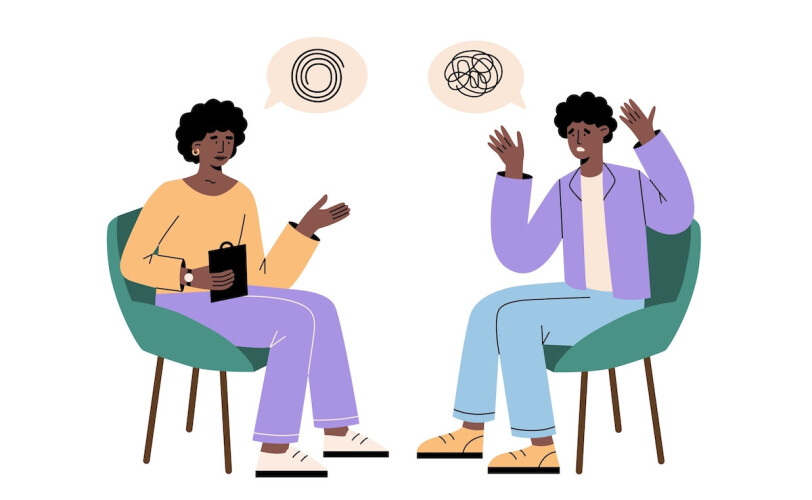Finding the right mental health counselor is a crucial step towards addressing your mental well-being. Whether you’re dealing with anxiety, depression, trauma, or any other mental health issue, having a supportive and competent counselor can make a significant difference in your journey towards healing and growth.
However, with numerous options available, it can be overwhelming to choose the right counselor for your needs. This comprehensive guide will walk you through the process of finding a mental health counselor who is a good fit for you.
Understand Your Needs
Before beginning your search for a mental health counselor, take some time to reflect on your needs and goals. Consider the following questions:
- What specific issues or challenges are you facing?
- What type of therapy or approach are you interested in (e.g., cognitive-behavioral therapy, psychoanalysis, mindfulness-based therapy)?
- Are you looking for a counselor who specializes in certain areas such as trauma, addiction, or relationship issues?
- Do you have any preferences regarding the counselor’s gender, age, or cultural background?
Understanding your needs and preferences will help you narrow down your search and find a counselor who is best suited to address your concerns.
Seek Recommendations
Ask for recommendations from trusted sources such as friends, family members, or healthcare professionals. They may be able to provide valuable insights and referrals based on their own experiences or knowledge.
Additionally, consider reaching out to online communities or support groups related to mental health, as members may be able to recommend counselors they’ve had positive experiences with.
Research Credentials and Specializations
Once you have a list of potential counselors, take the time to research their credentials and specializations. Look for counselors who are licensed and have advanced degrees in psychology, counseling, social work, or a related field.
Verify their credentials with relevant licensing boards or professional organizations.
Additionally, consider whether the counselor has experience working with clients who have similar concerns or backgrounds as yours. Counselors may specialize in areas such as:
- Anxiety disorders
- Depression
- Trauma and PTSD
- Substance abusr
- Couples therapy
- Family therapy
Choosing a counselor with expertise in your specific area of concern can increase the likelihood of a successful therapeutic outcome.
Consider Therapeutic Approach
Different counselors may utilize different therapeutic approaches or modalities in their practice. Some common approaches include:
- Cognitive-behavioral therapy (CBT)
- Psychodynamic therapy
- Humanistic therapy
- Mindfulness-based therapy
- Solution-focused therapy
Research these approaches to gain an understanding of their principles and techniques, and consider which approach resonates most with you.
Keep in mind that the therapeutic relationship itself is often more important than the specific approach used, so prioritize finding a counselor with whom you feel comfortable and supported.
Assess Compatibility
Compatibility with your counselor is crucial for the success of therapy. Schedule initial consultations or intake sessions with potential counselors to assess whether you feel comfortable and at ease in their presence. Pay attention to factors such as:
- Communication style: Is the counselor empathetic, attentive, and nonjudgmental?
- Trust and rapport: Do you feel understood and accepted by the counselor?
- Personal connection: Do you feel comfortable sharing your thoughts and feelings with the counselor?
- Cultural competence: Is the counselor respectful of your cultural background and identity?
Trust your instincts and don’t hesitate to continue your search if you don’t feel a strong connection with a particular counselor.
Inquire About Practical Matters
Before making a final decision, inquire about practical matters such as:
- Fees and insurance: Clarify the counselor’s fees for sessions and whether they accept your insurance plan if you have one. Ask about any available sliding scale options or payment plans.
- Session logistics: Determine the frequency and duration of sessions, as well as any policies regarding cancellations or rescheduling.
- Confidentiality and privacy: Ensure that the counselor adheres to ethical guidelines regarding confidentiality and privacy of client information.
- Availability: Consider the counselor’s schedule and availability to accommodate your needs.
Clear communication about these practical matters can help prevent misunderstandings and ensure a smooth therapeutic process.
Trust the Process
Once you’ve chosen a mental health counselor, remember that therapy is a collaborative process that requires time, effort, and commitment from both you and the counselor.
Be open to exploring your thoughts, emotions, and behaviors in a safe and supportive environment, and trust in the counselor’s expertise to guide you towards positive change and growth.
Conclusion
Finding the right mental health counselor is a significant step towards improving your overall well-being and quality of life.
By understanding your needs, seeking recommendations, researching credentials and specializations, considering therapeutic approaches, assessing compatibility, inquiring about practical matters, and trusting the process, you can find a counselor who is a good fit for you.
Remember that therapy is a journey, and finding the right counselor is an important first step towards healing and transformation.

